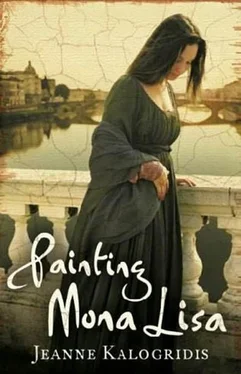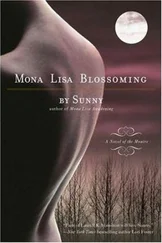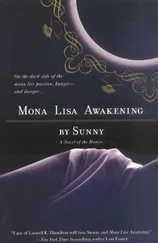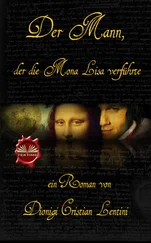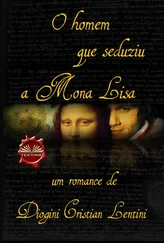1 ...5 6 7 9 10 11 ...115 At once, he grew remarkably dizzy, and heard a rushing in his ears; he shut his eyes and opened his mouth, gasping for air. There was none to be had, and so he drank in the foul Arno. He retched it up at once; then reflex forced him to gulp in more.
Giuliano was drowning.
Though a child, he understood clearly that he was dying. The realization prompted him to open his eyes, to capture a last glimpse of Earth that he might take with him to Heaven.
At that instant, a cloud moved overhead, permitting a shaft of sunlight to pierce the river so thoroughly that it caused the silt suspended in the water to glitter, and illumined the area directly before Giuliano’s eyes.
Staring back at him, an arm’s length away, was the drowning Lorenzo. His tunic and mantle had been caught on an errant branch, and he had twisted himself about in a mad effort to be free.
Both brothers should have died then. But Giuliano prayed, with a child’s guilelessness: God, let me save my brother .
Impossibly, he had pulled the tangled clothing loose from the branch.
Impossibly, the freed Lorenzo had seized Giuliano’s hands and pulled the two of them up to the surface.
From there, Giuliano’s memory became blurred. He remembered only snippets: of himself vomiting on the grassy shore while the slave woman pounded his back; of Lorenzo wet and shivering, wrapped in picnic linens; of voices calling out: Brother, speak to me! Of Lorenzo in the carriage on the ride home, furious, fighting tears: Don’t ever risk yourself for me! You almost died! Father would never forgive me! … But the unspoken message was louder: Lorenzo would never forgive himself.
Recalling the incident, Giuliano swallowed wine without tasting it. He would have gladly surrendered his life to save Lorenzo’s-just as easily and thoughtlessly as Lorenzo would have sacrificed himself to save his younger brother. It seemed to Giuliano a mockery that God had given him such a gift as Anna’s love-only to require him to wound the man he loved most.
Giuliano sat for hours, watching the darkness of night deepen, then slowly fade to gray with the coming of dawn, and the day he was to leave for Rome. He sat until the arrival of his insistent visitors, Francesco de’ Pazzi and Bernardo Baroncelli. He could not imagine why the visiting Cardinal should care so passionately about Giuliano’s presence at Mass; but if Lorenzo had asked him to come, then that was good enough reason to do so.
He hoped, with sudden optimism, that Lorenzo might have changed his mind, that his anger had faded and left him more receptive to discussion.
Thus Giuliano rallied himself and, like a good brother, came as he was bidden.
B aroncelli hesitated at the door of the cathedral as his objectivity briefly returned to him. Here was a chance to flee fate; a chance, before an alarm could be sounded, to run home to his estate, to mount his horse and head for any kingdom where neither the conspirators nor their victims had influence. The Pazzi were powerful and persistent, capable of mounting efforts to hunt him down-but they were neither as well connected nor as dogged as the Medici.
In the lead, Francesco had turned and goaded Baroncelli on with a murderous glance. Giuliano, still distracted by a private sorrow, was heedless and, flanked by the uncertain Baroncelli, followed Francesco inside. Baroncelli felt he had just crossed the threshold from reason into madness.
Inside, the smoke-filmed air was redolent with frankincense and sweat. The sanctuary’s massive interior was dim, save for the area surrounding the altar, which was dazzling in the late morning light streaming from the long arched windows of the cupola.
Again taking the least noticeable path along the north side, Francesco headed toward the altar, followed closely by Giuliano, then Baroncelli. Baroncelli could have closed his eyes and found his way by smell, measuring the stench of the poor and working class, the lavender scent of the merchants, and the rose of the wealthy.
Even before he caught sight of the priest, Baroncelli could hear him delivering his homily. The realization quickened Baroncelli’s pulse; they had arrived barely in time, for the Eucharist was soon to follow.
After the interminable walk down the aisle, Baroncelli and his companions arrived at the front row of men. They murmured apologies as they sidled back to their original places. An instant of confusion came as Baroncelli tried to move past Giuliano, so that he could stand on his right, the position dictated by the plan. Giuliano, not understanding Baroncelli’s intent, pressed closer to Francesco-who then whispered something in the young man’s ear. Giuliano nodded, stepped backward, and made an opening for Baroncelli; in so doing, he grazed the shoulder of the penitent, who stood waiting behind him.
Both Francesco de’ Pazzi and Baroncelli watched, breathless, to see whether Giuliano would turn and make apology-and perhaps recognize the man. But Giuliano remained lost in his own misery.
Baroncelli craned his neck to look farther down the row, to see if Lorenzo had noticed; fortunately, the elder Medici brother was busy bending an ear to a whispered comment from the manager of the family bank, Francesco Nori.
Miraculously, all of the elements were now in place. Baroncelli had nothing to do save wait-and pretend to listen to the sermon while keeping his hand from wandering to the hilt at his hip.
The priest’s words seemed nonsensical; Baroncelli strained to understand them. Forgiveness , the prelate intoned. Charity. Love thine enemies; pray for those who persecute you .
Baroncelli’s mind seized upon these phrases. Lorenzo de’ Medici had picked this Sunday’s priest himself. Did Lorenzo know of the plot? Were these seemingly innocuous words a warning not to proceed?
Baroncelli glanced over at Francesco de’ Pazzi. If Francesco had detected a secret message, he gave no sign of it; he stared straight ahead at the altar, his gaze unfocused but his eyes wide, bright with fear and hatred. A muscle in his narrow jaw twitched madly.
The sermon ended.
The elements of the Mass proceeded with almost comical swiftness: The Creed was sung. The priest chanted the Dominus vobiscum and Oremus . The Host was consecrated with the prayer Suscipe, sancte Pater .
Baroncelli drew in a breath and thought he would never be able to release it. The ceremony abruptly slowed; in his ears, he could feel the desperate thrum of his heart.
The priest’s assistant approached the altar to fill the golden chalice with wine; a second assistant added a small amount of water from a crystal decanter.
At last, the priest took the chalice. Carefully, he lifted it heavenward, proffering it to the large wooden carving of a dolorous, crucified Christ suspended above the altar.
Baroncelli’s gaze followed the cup. A shaft of sunlight caught the gold and reflected blindingly off the metal.
Again, the priest chanted, in a wavering tenor that sounded vaguely accusatory.
Offerimus tibi, Domine …
Baroncelli turned to look at the younger Medici next to him. Giuliano’s expression was grave, his eyes closed. His right hand was clenched in a fist; his left hand clasped it, and both were pressed tightly to his lips. His head was bowed, as if he were preparing to greet Death.
This is foolish , Baroncelli thought. He had no personal enmity toward this man; indeed, he liked Giuliano, who had never asked to be born a Medici. His quarrel with him was purely political, and certainly not great enough to warrant what he was about to do.
Francesco de’ Pazzi jabbed Baroncelli fiercely in the ribs, relating the unspoken message perfectly: The signal has been given! The signal has been given!
Читать дальше
Конец ознакомительного отрывка
Купить книгу
